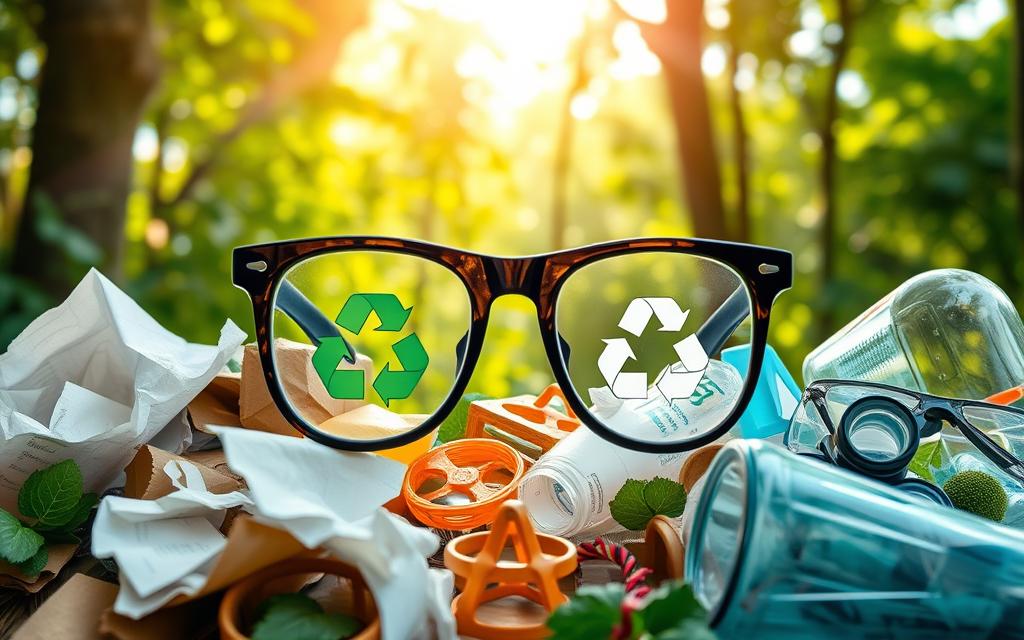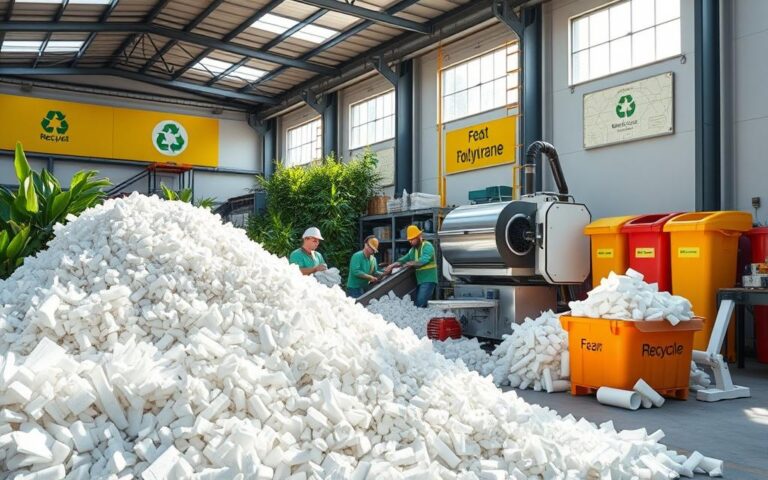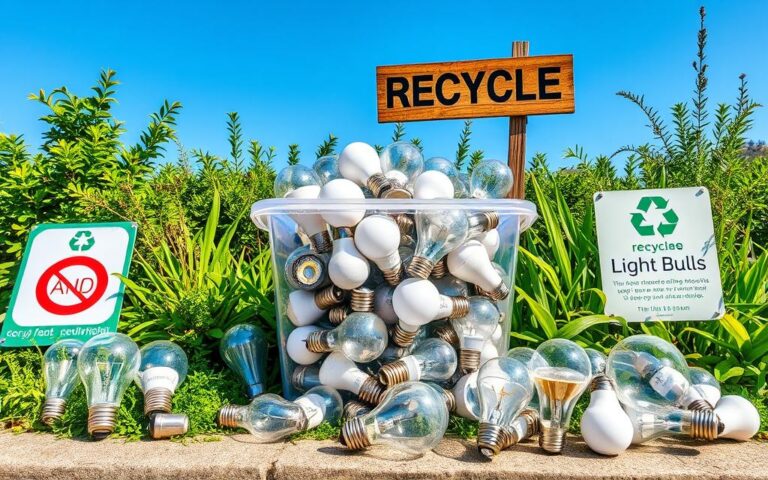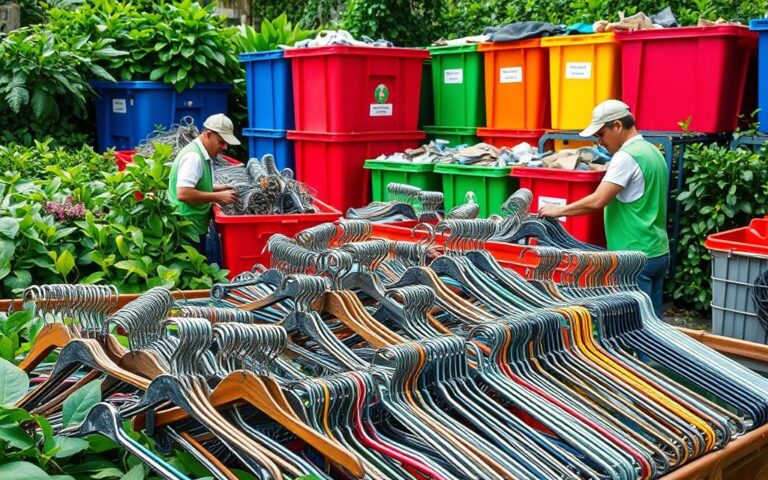Can You Recycle Spectacles? How to Dispose Responsibly
The importance of sustainability is growing, making us wonder about responsible spectacles disposal. In the UK, 46 million people wear glasses, leading to a significant waste issue. The waste from eyewear harms the environment because of the production materials. By recycling, donating, or upcycling glasses, we can help the planet and aid less fortunate communities.
Programs like the Canadian Lions Eyeglass Recycling Center have given over 6 million prescription glasses to those in need. This shows the huge impact of proper eyeglass disposal. Additionally, groups like OneSight have helped over 9 million people with vision loss in 46 countries. They show the value of extending glasses’ life cycles. We’ll explore how to dispose of glasses in eco-friendly ways to support a circular economy.
Properly handling old eyewear is crucial for a sustainable future. You can donate, reuse, or recycle your old glasses. Every small action helps make a big difference.
The Importance of Responsible Eyewear Disposal
Getting rid of eyewear responsibly is crucial in fighting eyewear waste. When we throw glasses away carelessly, they add a lot to landfill problems and harm the environment. Eyewear materials like plastics and metals don’t break down, making it vital to dispose of them properly.
People are buying more glasses than ever, often changing them for new prescriptions or styles. This leads to lots of eyewear waste. It’s key to learn how to dispose of glasses rightly. Otherwise, many glasses will end up in landfills, lasting for hundreds of years and damaging our planet.
There are efforts to lessen the environmental harm. Groups like Lions Club International and OneSight are working to recycle glasses. They help get glasses to those who need them instead of letting them become waste. By recycling, we reduce waste and save valuable materials. With a good understanding of disposal and joining recycling programs, we can all help.
Can You Recycle Spectacles?
Wondering if you can recycle spectacles? It involves understanding their make-up and the recycling challenges. Spectacles are made from varied materials, making recycling tricky.
Understanding the Materials in Spectacles
Spectacles combine different materials such as plastic, metal, and glass. The types of materials in spectacles impact how they can be recycled. Glass lenses are easier to recycle than plastic ones. Plastic in glasses can cause problems for recycling centres that can’t handle mixed materials. Knowing what eyewear components are made of helps people choose sustainable disposal options.
Challenges in Recycling Glasses
Recycling glasses involves hurdles. Frames often mix materials and include tiny parts that normal recycling centres struggle with. This adds to the recycling challenges within the eyewear sector. Also, not many know the correct way to dispose of their glasses, leading to more waste.
However, organisations like Lions Clubs International work to overcome these challenges. They have boxes and centres to donate old glasses. These efforts help the glasses recycling process. By giving away old spectacles, you help the environment and those needing vision support. Many opticians also offer recycling services with drop-off boxes. If you’re looking to donate, groups like New Eyes and OneSight welcome old glasses for those in need.
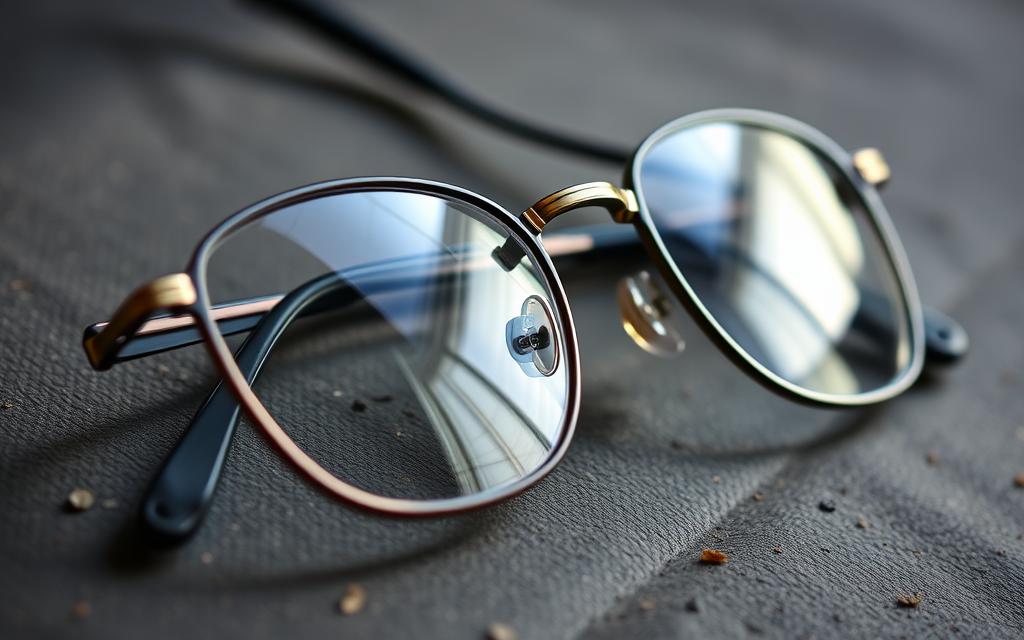
The Environmental Impact of Discarded Eyewear
The increase in eyewear use has led to big environmental issues. Now, over 4 billion people globally wear glasses. This includes everything from prescription lenses to sunglasses. This high demand leads to much eyewear waste. Sadly, most of these glasses are thrown away and not recycled. This adds to the global waste problem.
Statistics on Eyewear Waste
Many glasses are made from materials that can’t be recycled easily. This creates problems for recycling systems around the world. Data shows that lots of frames end up in dumps. These are mainly made of plastics which don’t break down for years. Even metal frames, like those made from titanium and aluminium, take a long time to decompose. So, the waste from thrown-away glasses greatly harms the environment.
Landfill Issues and Sustainable Solutions
It’s crucial to find sustainable ways to deal with eyewear. Manufacturers are starting to use materials that don’t harm the planet. They are also setting up programs for recycling and fixing glasses. For example, brands like Lensology offer services to repurpose old frames. This lowers the amount of waste and encourages people to take care of their glasses for longer.
There are campaigns teaching about the right way to dispose of glasses. They suggest supporting brands that care about the environment. They also encourage giving away glasses you don’t need to charity. Some people even turn old frames into art or decorations. These actions can help lessen the environmental damage from eyewear. They move us towards a greener future.
Options for Recycling and Reusing Spectacles
With sustainability in focus, local recycling programmes help with spectacles disposal. Organisations collect used eyewear for recycling or reuse. For instance, the Canadian Lions Eyeglass Recycling Centre (CLERC) sends over six million glasses to those in need. Community support boosts these initiatives, making more people eager to recycle their glasses.
Local Recycling Initiatives
It’s good to find local spots for recycling glasses. Opticians often take old glasses, making it easy to contribute. Recyclable materials in glasses frames are welcomed at local centres. Selling or trading on sites like eBay and Depop also helps, supporting a circular economy.
How to Clean and Prepare Spectacles for Recycling
Cleaning your glasses before recycling is vital. Remove dirt and separate non-recyclable parts like damaged lenses. Properly store frames to ensure they’re ready for processing. Professionals can reglaze frames, giving them a new life and encouraging eco-friendly disposal.
FAQ
Can I recycle my old spectacles?
Yes, you can recycle your old spectacles. Recyclers like Close the Loop take used eyewear. They make sure it’s processed right. Check local programmes for eyewear disposal.
Why is responsible eyewear disposal important?
It’s key for cutting down eyewear waste. It lessens the environmental harm from materials that don’t break down. Proper disposal safeguards ecosystems and promotes sustainable practices.
What materials are spectacles made from?
Spectacles come in metal, plastic, and glass. Knowing the materials helps understand recycling needs and challenges. It shows the recycling process’s difficulties.
What challenges exist in recycling spectacles?
Mixed materials and complex designs raise recycling issues. Frames have tiny parts that must be sorted accurately. It shows why recycling eyewear is hard.
How do discarded eyewear affect the environment?
Thrown away glasses majorly affect landfills. They often end up there, where they take years to break down. This damages the environment over time.
What are sustainable solutions for discarded eyewear?
Options include recycling, donating to those in need, and joining community programmes. Such activities encourage responsible disposal.
How can I prepare my spectacles for recycling?
Clean them well and take off any bits that can’t be recycled. Make sure they’re ready for local drop-off points.
Are there any local recycling initiatives for spectacles?
Yes, there are. Initiatives like the Canadian Lions Eyeglass Recycling Centre (CLERC) help. They offer eyewear recycling and urge correct disposal.

